HOW AIRPORTS WILL CHANGE AFTER CORONAVIRUS
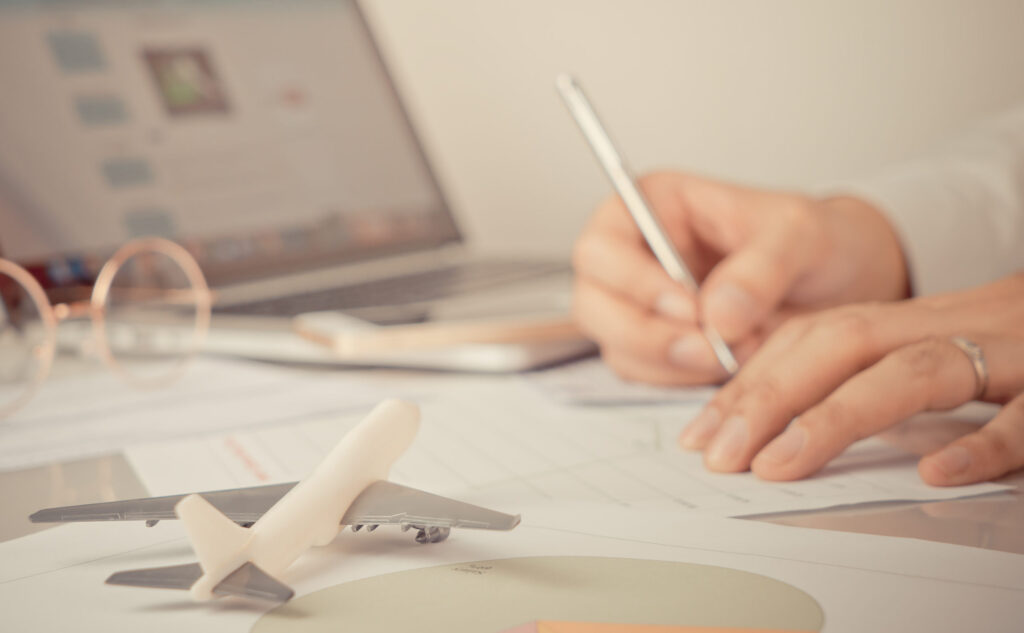
Although the number of airline passengers screened by the Transportation Safety Administration (TSA) each day is still down from past years, it has risen substantially from less than 100,000 travelers a day in April 2020 to more than 886,000 on January 2021. The reality is that even before COVID, travelers had to contend with smudge-screened check-in kiosks, long security lines, crowded terminals, overpriced retail and dining outlets, and a stressful boarding procedure, all of this before even setting foot on an airplane.
Due to new health concerns, traveling to, from, or through airports is about to get a lot more hectic. As certain countries begin to slowly reopen in the wake of the coronavirus, airports are looking at what it will take to make fliers feel comfortable in their facilities again. That is sure to be no small task. In total, it has been share that over 70 different areas in the passenger journey are expected to either change or to be introduced from scratch to restore confidence in flying after COVID.
In addition to requiring travelers and employees wear facemasks, airports are examining how to adapt their every aspect to a post-COVID world. Here is how experts say each part of the journey through airports may change once air travel begins to pick up again, what to expect and how to lower your risk if you fly.
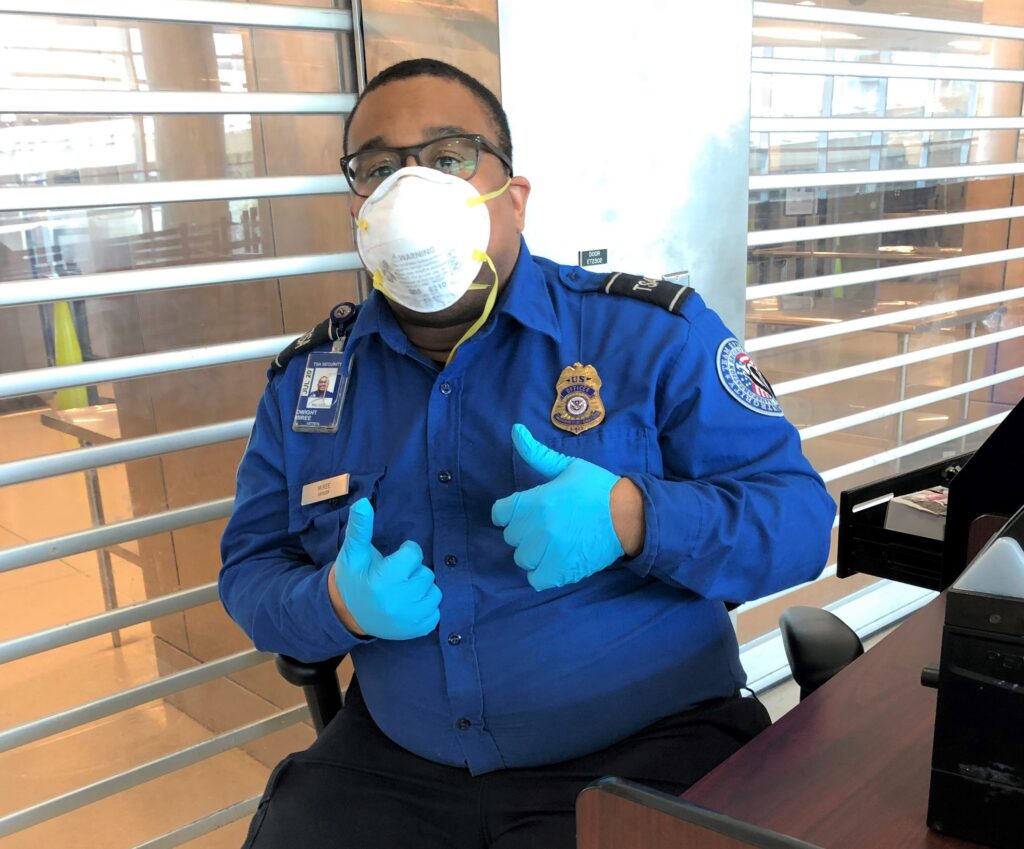
Restrictions entering the airport
We will see a very visible level of heightened health screening and adjustments to the previous travel process. Those adjustments will include limiting the people who can actually enter airport buildings, more mobile and self-service options, and other now-normal social distancing principles applied to terminals. Down the line, passengers could also pass through a disinfection tunnel and thermal scanners when entering the airport; only those ‘fit to fly’ will be allowed to enter. Thermal cameras, which are able to scan a crowd for a feverish temperature, are already in use at several facilities. Once inside the airport, travelers will see touchless options for checking in .
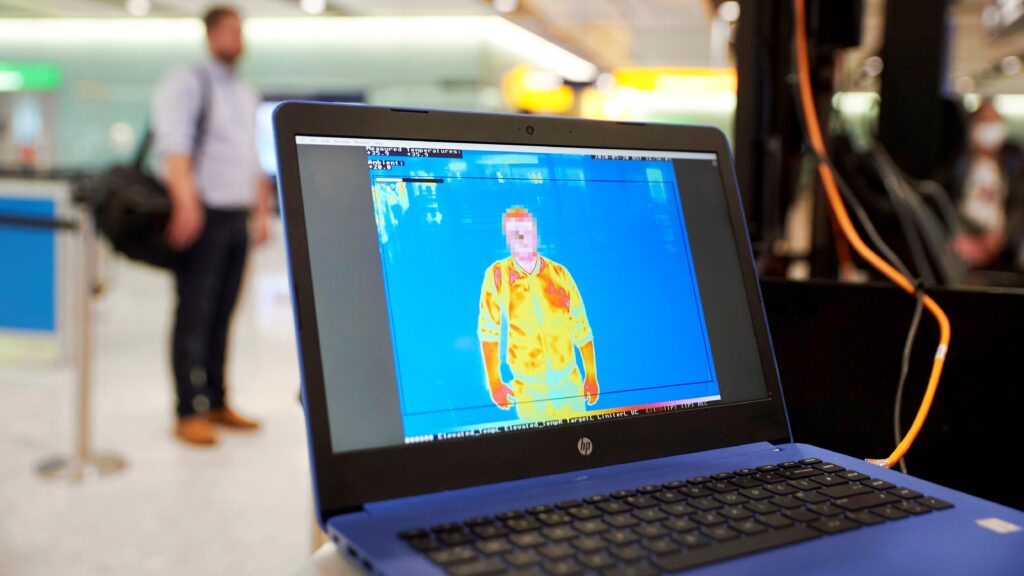
Health screening
In addition to temperature screening, other medical tests to scan for the coronavirus are possible. It has been reported that a lung CT scan could be implemented prior to security screening. The gate-side shop where fliers can get a manicure or shoulder massage recently hired its first chief medical officer to start express tests, which aim to administer COVID blood tests to airport employees.
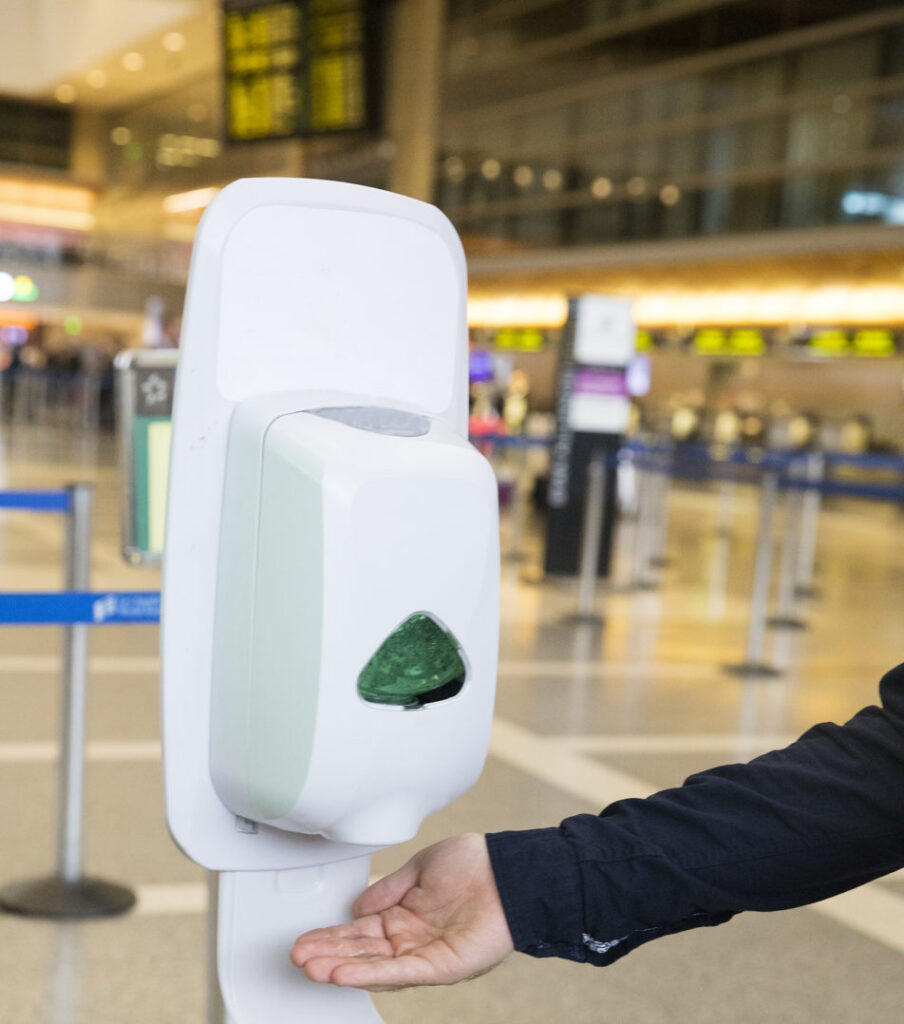
Airport hygiene standards
Cleaning will be stepped up and it will be far more visible to create more confidence among visitors, but also conducted more frequently than it has been in the past. Travelers will notice a lot more hand sanitizer stations at many facilities throughout the terminals; some airports have even installed vending machines with items like hand sanitizer, disinfectant wipes, masks, and gloves.
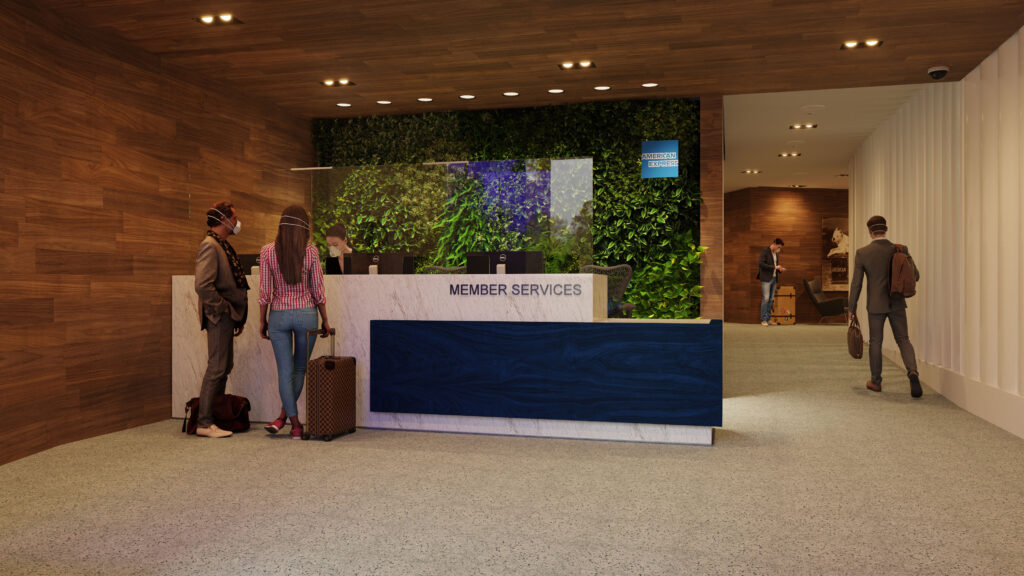
Airport Lounges
Many airlines and other operators have closed their airport lounges for the time being, but they are expected to reopen as passenger counts continue to climb. Some lounges could find a new audience among the most frequent fliers, since they provide spaces away from potentially crowded concourses.
Concierges like Sabio and Centurion can assist you with lounge access. A number of enhancements around cleaning protocols, food and beverage service, and more within the lounges are being set up.
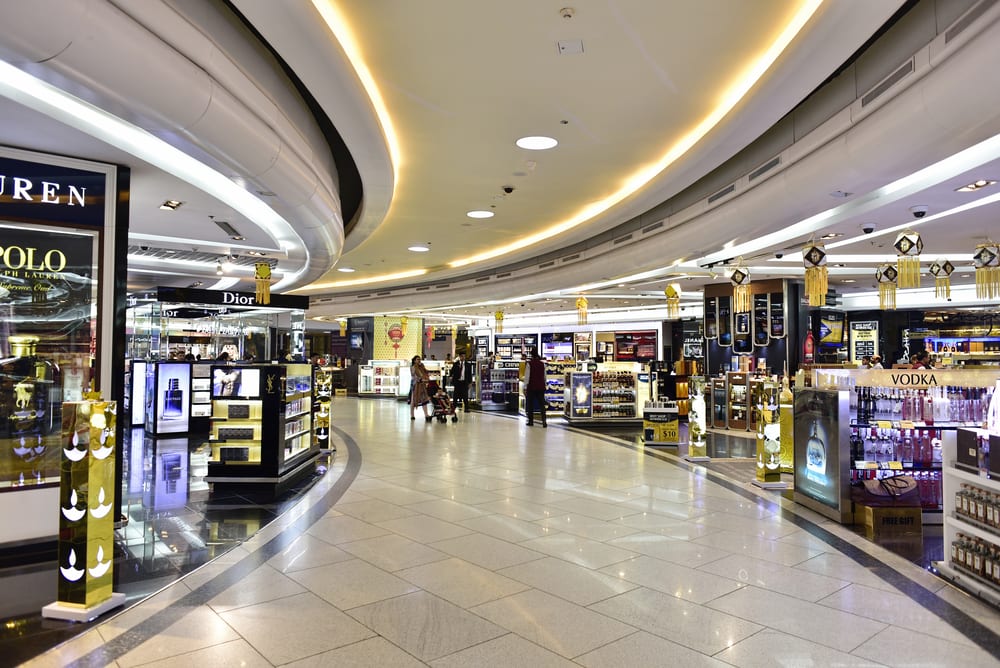
Retail
Travelers will still be able to pick up magazines and snacks at airport stores, but will find new sections with personal protective gear and sanitary supplies.
Section of stores are being stocked with disposable face masks, cleaning wipes, and hand sanitizers. The stores are ramping up self-scanning capabilities, adopting new tap-to-pay credit card options, and waiving signature requirements on certain purchases to minimize personal contact with cashiers, shorten wait times, and reduce crowding.
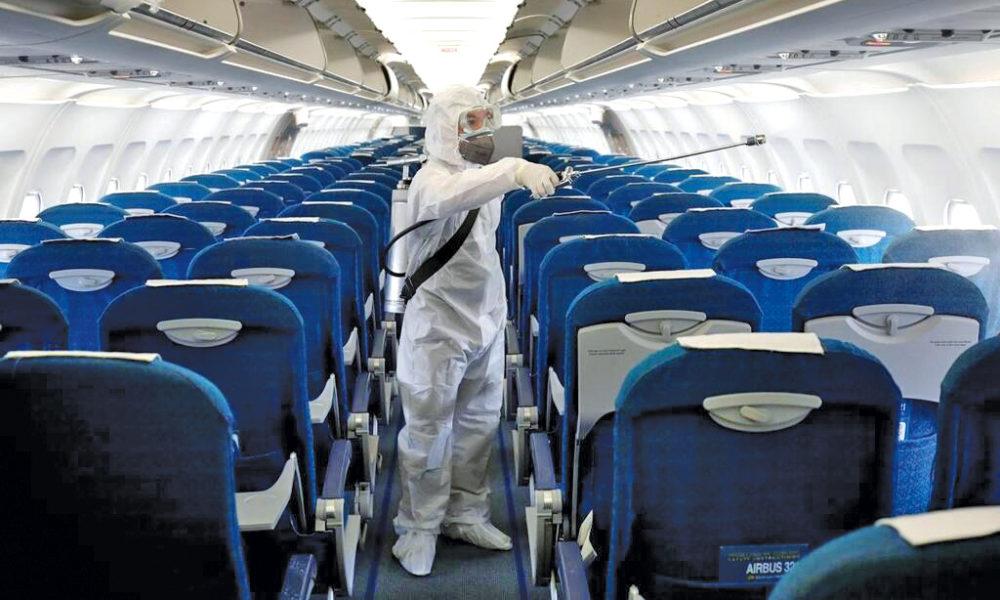
On the plane
The airlines are doing what they can to prevent infection, including requiring passengers and crew to wear masks, getting stricter on disinfection procedures, and boarding passengers from the back of the plane to the front. Some airlines are blocking middle seats to enable social distancing.
All the major U.S. airlines have equipped their planes with high-efficiency particulate air filters that remove dust, pollen, mold, bacteria and airborne particles.
The CDC concurs that most viruses and other germs do not spread easily on flights because of how air circulates and is filtered on airplanes.
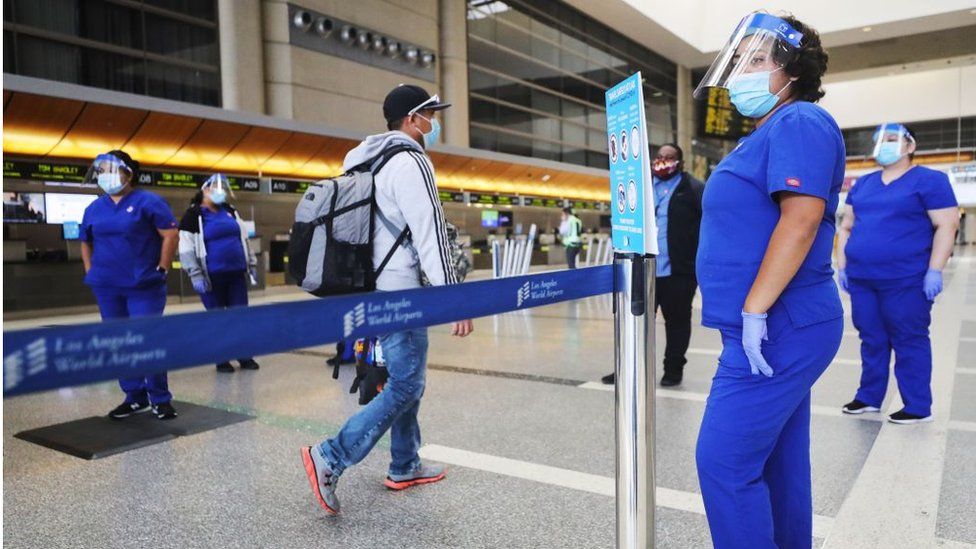
Arrival
In general, arriving passengers will undergo another temperature screening at their final destination and potentially even blood tests for COVID. Some airports are testing passengers for the coronavirus with a blood test before they are allowed to enter the country. Most large airports have an isolation room but are working to determine how many more isolation rooms are needed and how to strategically place them throughout the airport. The goal is to get a symptomatic person out of the main flow of passengers as quickly as possible and minimize their contact with other passengers.
I am sure more measures will be taken as the world keeps going through changes. The most important thing is to realize that the world changes and everything evolves to change with it.
Have you travelled through the pandemic? How was your trip impacted? Please share with me which airport have you visited during covid. How has your travelling changed? How have you adapted to these changes at the airport? I would love to hear your opinion and experiences.
